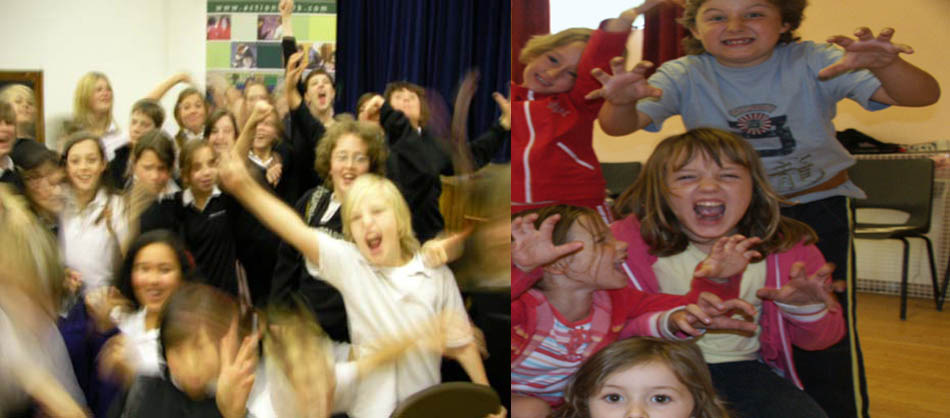Children and Young People's Participation
Youth Participation
The Director and CEO of Actionwork® Dr Andy Hickson undertook a huge doctoral research study on youth participation. If you are interested in reading the whole thesis you can get it for free here
As educators, as adults, as researchers we are often evaluating the work of young people. If we switch it the other way round so that young people are given the opportunity to evaluate the work of adults, there are often calls for concern. Teachers, for example, frequently feel uncomfortable about this. Haggarty and Postlethwaite (2003) received feedback from some teachers who said that you need to be really careful when you start asking children what they think about their teacher because some children are not really objective sometimes. Comments such as these often came from teachers who had not engaged themselves in the research process; they did not value evidence from pupils that contradicted their own perception of situations in school (Haggarty and Postlethwaite, 2003). More recently, researchers have seen the need to record children’s own perspectives on the grounds that children are the most important source of evidence on how they experience their lives (Cowie and Jennifer, 2008. p. 95).
So why involve young people?
Research has shown that children and young people are far more likely to accept and respect a school’s behaviour and anti-bullying policy if they are involved in developing and writing it. This way they feel they have some kind of ownership of it. Involving and putting children and young people at the centre of the design, delivery and evaluation of a school’s anti-bullying initiative is far more likely to make the initiatives successful as they will be based on what young people want and need rather than on what adults think they want and need.
What is in it for schools?
Schools that have made an effort in consultation will have and engaged children and young people on many aspects of their behaviour and anti-bullying policies and procedures. They will notice:
- Improved relationships between teachers and students/pupils
- Improved standards of behaviour and attendance
- A reduction in bullying incidents and conflict across the whole school community and outside of school
- A reduction in teacher/staff time spent on bullying issues
- Happier and more respectful students and staff
- An increase in educational standards
- An increase in educational results
What can the local community gain?
Youth participation can help protect children and young people against bullying. The failure of adults to listen to, and act upon, children and young people’s concerns about bullying is a recurring theme. The literature is abound with examples of this. The local community will become more cohsive, people will be more open to sharing and divulging and bystanders will become witnesses.
What are some of the principles of children’s and young people’s participation?
1) Clear and opem statemest from governing bodies, Heads, Local Authorities and others working with young people that their voices matter. Set aside specific budgets for this to happen
2) Valuing young peoplke's involvement.This should include respecting and trusting children and young people, making appropriate information/policies available for them, managing young people's expectations - be clear and consistent; what is allowed and what is not. Provide feedbackof how young people are doing and any outcomes not only to those directly involved (such as a student council) but the whole school body. Last but not least, remember to celebrate achievements and highlight which outcomes have made a difference to the school as a whole and students individually.
Who should be involved?
3) All children and young people should have the chance to be involved in participation on issues and subjects that matter to them. Ensure that no one is excluded or prevented from getting involved on grounds of culture, race, religion, ability, age, ethnicity, gender, language, sexual orientation or the area in which they live.
4) Remember to review, reflect and guide the young people who are involved and to continually look for new areas of involvement. Ask yourself why some people do not get involved? Ask the young people the same question and see if your answers match.
Remember that young people can effectively deal with issues of bullying as long as thney have had the right training and guidance.
Do you need more help?
Actionwork® provide a whole series of peer support training and peer educators training in addition to helping schools get to grips with effective youth participation. The research suggests that anti-bullying training using the creative arts helps peer supporters feel more confident, empowered, satisfied with what they had achieved. They developed pride in helping other people, satisfaction at learning new skills, making new friends and alliances, and got a better understanding of people and a broader awareness of bullying and the world in general.
Booking an Actionwork® training programme
Please contact us for details or go direct to our booking page.








